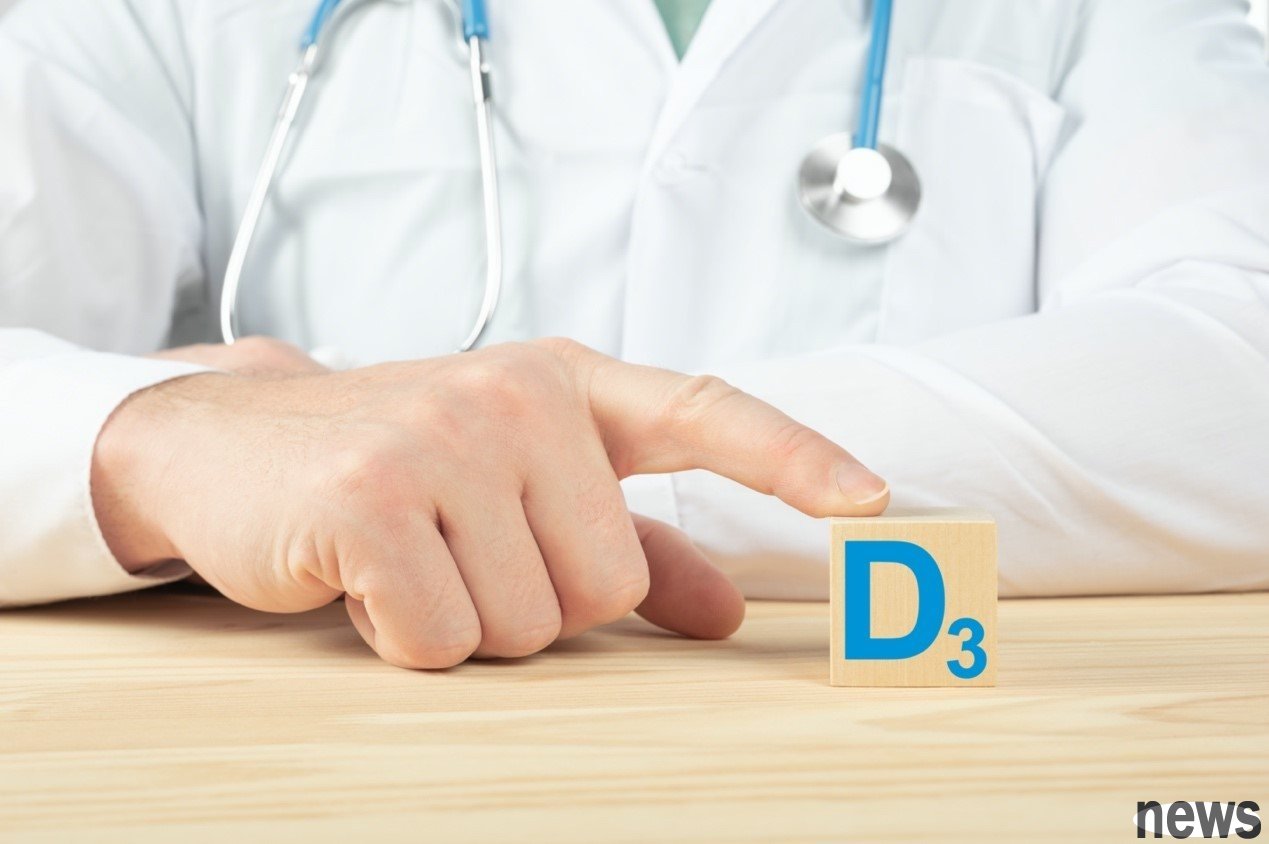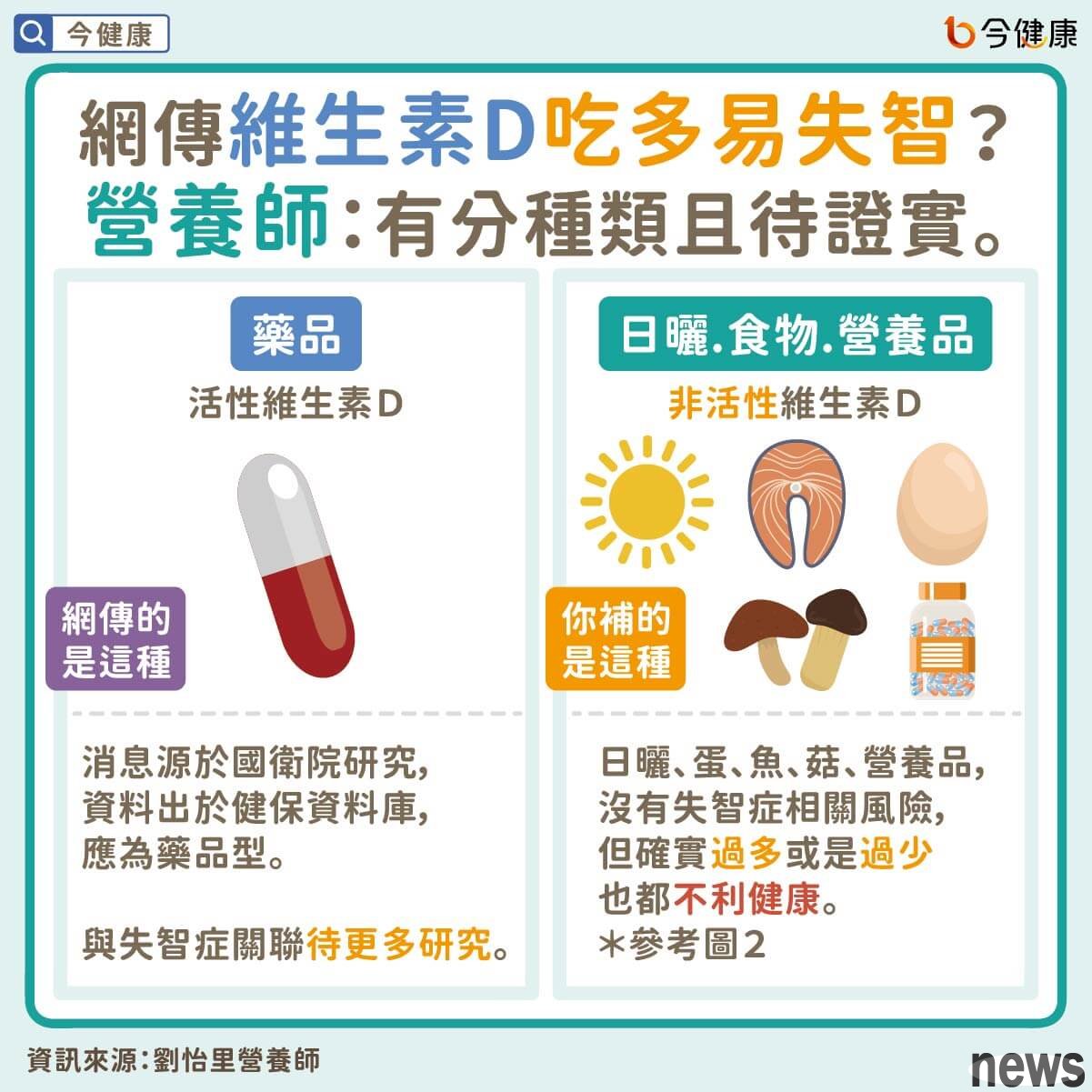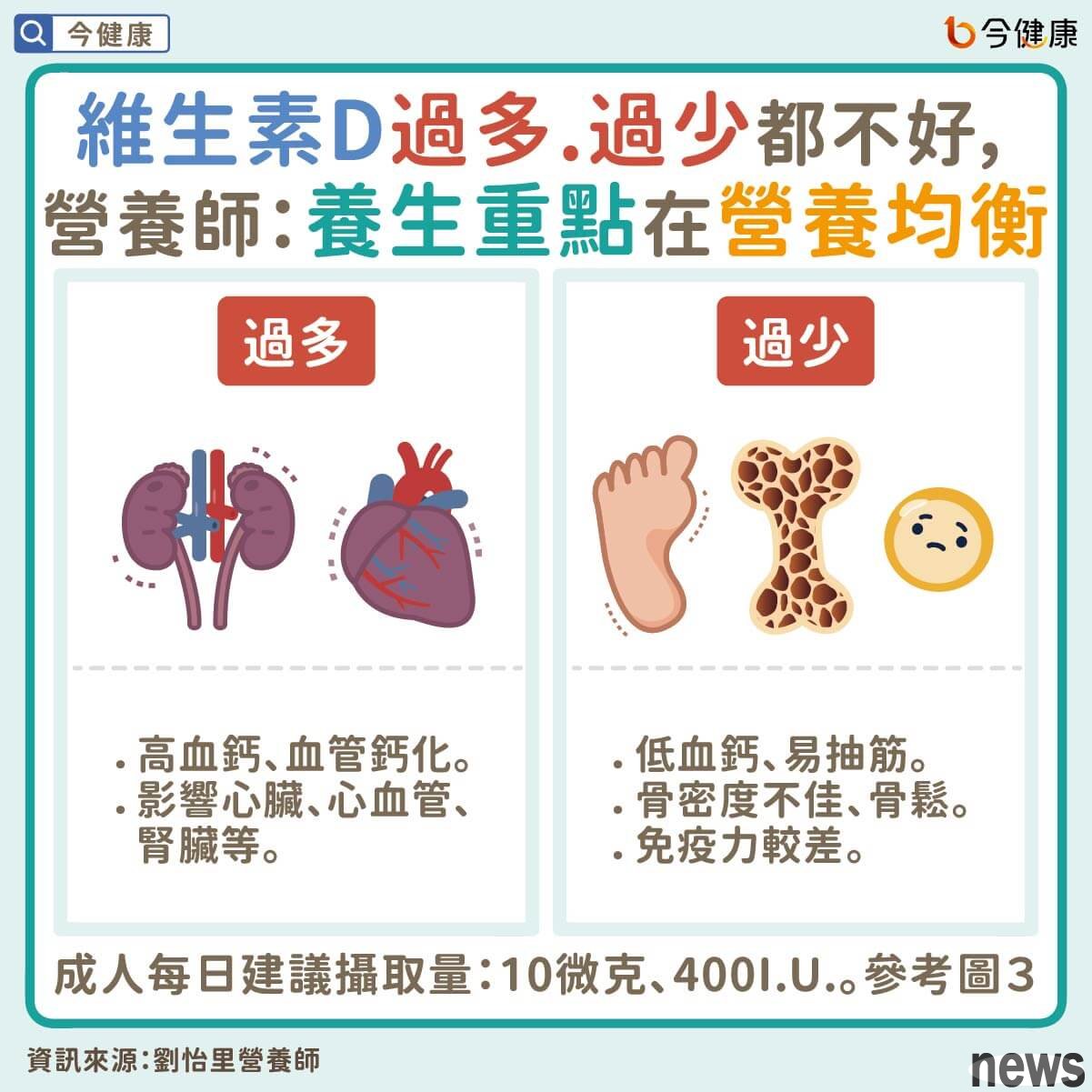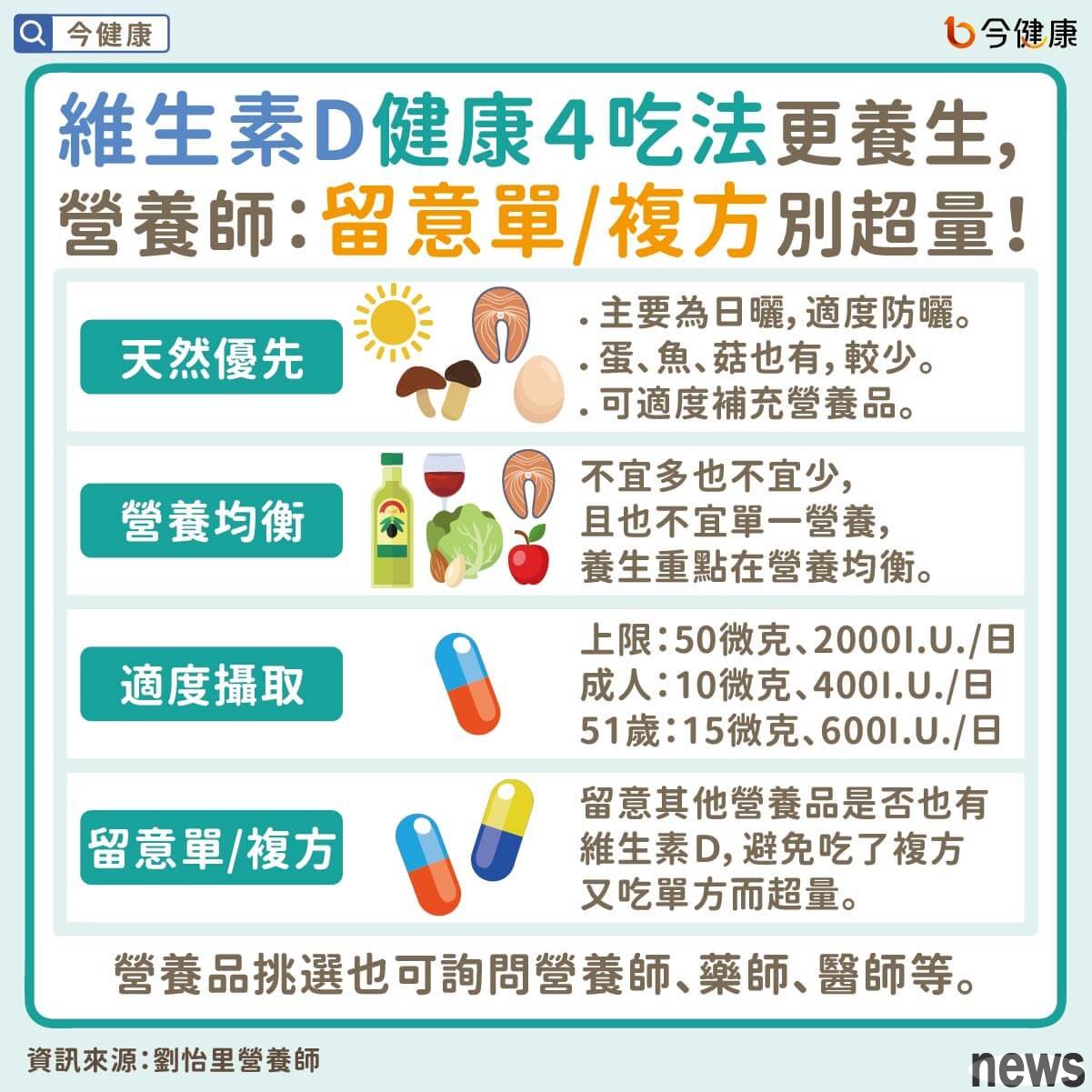
Vitamin D has been quite popular in recent years, but the news that "eating too much vitamin is easy to dementia" has recently spread online, which has made many people feel a little worried and suspicious. This is a nutritionist in Liu Yili, and will teach you how to correctly and safely take vitamin D to help nourish your health!
Eat too much online vitamin D and easily dementia? Nutritionist: There are categories and are to be proven.
Liu Yili Nutritionist said that the term "eat vitamin D more often and is prone to dementia" is understood to understand that it originated from a study by the National Hospital. The data mainly comes from the health care database. The "active vitamin D" that should be a drug is different from the "inactive vitamin D" health foods, nutrients and food intake that people usually eat raw.
Nutrients explain that human vitamin D is required to receive liver and kidneys to form active vitamin D. If the organ function is poor and cannot be formed effectively, this situation will be directly assisted by active vitamin D drugs called calcitriol, a medical drug called calcitriol. For example, patients with kidney failure and patients with kidney washing have the chance to use it.
Based on this view and current research, the vitamin D nutrients that people generally eat will not cause dementia. Whether vitamin D of the drug is related to dementia is still needed to be proved by more research. After all, the ethnic groups studied are often found in the case of dementia. However, even for drugs, patients can only use it after the doctor checks and properly evaluates it. The risk should not be high and ordinary people cannot obtain it. Therefore, the saying "eating vitamin D too much is easy to be dementia" on the Internet is somewhat dangerous.
However, over-invigorating inactive vitamin D in health foods will indeed cause negative effects and toxicity. In addition, more common problems include groups with insufficient vitamin D intake. Pay attention to the impacts brought by these two situations.

Too much vitamin D is not good, nutritionist: The key to nourishing is nutrition balance!
Liu Yili Nutritional Teachers explained that vitamin D has a lot of help to the human body, mainly including helping the absorption of calcium, helping the growth and development of bones and teeth, helping to maintain the normal physiology of nerves and muscles, promoting the release of calcium, and maintaining blood calcium balance. Recently, it has also been discovered to be related to immunity control. Therefore, in recent years, whether it is based on personal care for epidemic prevention or bone relief, vitamin D has been popular.
However, if excessive nutritional and nutritional vitamin D is taken too high, it is prone to have problems with hypergalactia, which increases the risk of vascular calcification, which may affect the heart, cardiovascular, kidney, etc. in the long run, and increase the risk of myocardial infarction and kidney failure. As for those with insufficient vitamin D intake, it is often common for elderly people, office workers, large night shifts, people who do not have enough time, have excessive sun protection, and have been in bed for a long time. They rarely have sunny habits or take vitamin D from food. Contrary to excessive intake, it may be prone to problems such as hypoxia, prone to cramps, poor bone density, high bone limp risk, and insufficient immunity.
Therefore, Liu Yili Nutritional Teacher reminds that the public should maintain good awareness of vitamin D or other nutrients, that is, nutrition is balanced, and it should not be too much or too little, and it should not be single. To develop a good habit, so that the child will not hurt your body.

The way to take vitamin D health 4 is more helpful for nourishment. Nutritionist: Pay attention to the excessive amount of single/multi-prescription!
Liu Yili Nutritional Manager also suggested that if the public wants to take vitamin D at ordinary times, daily life will be the main source. Through daily life, the body can synthesize vitamin D, but it should also remember to take appropriate sunscreen, and it is best to avoid excessive exposure and increase the risk of heat stroke and even skin cancer.
As for food-based sources, there are fewer sources, but there are still some, which can be taken from animal fish, eggs or plant-based mushrooms, which are better for mushrooms to pass sunlight. If you are usually hard to have the chance to leave the sun, or eat less fish, eggs, and mushrooms, you can supplement nutrients and health foods appropriately.
Nutritional products and health foods often have complex products and vitamin D in various products. You can also ask medical professionals such as nutritionists, pharmacists, doctors, etc., which will help you choose products that suit you. When eating, you should also be careful not to eat more and more prescriptions, so as to avoid invisible overdose.
The maximum daily intake of vitamin D is 50 micrograms, which is equivalent to 2000 I.U. Adults recommend that the daily intake amount is 10 micrograms and 400 I.U.; for those over 51 years old, 15 micrograms and 600 I.U. Developing a good nutritional habit will help you develop more!

《
